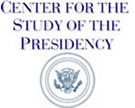Or ask Thucydides, the Athenian historian whose tome on the Peloponnesian War has ruined many a college freshman’s weekend. The line they had to remember for the test was his conclusion: “What made war inevitable was the growth of Athenian power and the fear which this caused in Sparta.”
So while no official would dare say so publicly as President Hu Jintao bounced from the White House to meetings with business leaders to factories in Chicago last week, his visit, from both sides’ points of view, was all about managing China’s rise and defusing the fears that it triggers. Both Mr. Hu and President Obama seemed desperate to avoid what Graham Allison of Harvard University has labeled “the Thucydides Trap” — that deadly combination of calculation and emotion that, over the years, can turn healthy rivalry into antagonism or worse.
It was striking, in fact, just how carefully both sides had used the past five months — in letters and phone calls between the presidents and quiet shuttling between Beijing and Washington — to diffuse fears that have already cropped up on both sides. The Chinese went to extraordinary lengths to avoid any message like Nikita Khrushchev’s “We will bury you.” And the Obama White House studiously avoided signaling, “We will contain you.” It was as if each was trying to send a message to the other’s constituencies that despite all that one reads on the blogosphere, there is nothing inevitable about a clash of systems between China and the United States.
Consider what happened when Mr. Hu, a man who never wanders far from his notes and cue cards, entered the Oval Office on Wednesday morning after a private dinner the night before in the White House residence. He made a presentation to Mr. Obama about China’s challenges at home: Low per-capita income, huge disparities between rich and poor, badly polluted cities, a social safety net with holes big enough for 1.3 billion people to slip through. It was a remarkable, if stiff, highlighting of China’s limits, not its new powers.
“The message seems to be you don’t need to fear us, but you also should know that we can’t do everything you want,” said Jeffrey A. Bader, Mr. Obama’s top Asia adviser. “And by the way, both of those statements are true.”
Mr. Bader concludes: “The notion that they can challenge our supremacy in our lifetimes is not in the cards. They can challenge us on certain technologies,” he said, and militarily “in areas close to their shores — but not globally, not for a long while.”
By contrast, anyone who turned on American television sets during the most recent Congressional campaigns, or stepped onto the campus of the Central Party School on the outskirts of Beijing over the past year, would get a heavy dose of the alternative view. More than a few American candidates portrayed the Chinese as mocking America’s debts and lack of discipline, and as predicting a Britain-like decline. And at a recent conference at the Central Party School, where the country’s elite are trained and its rulers have a safe place to bat around ideas, there was an underlying tone that China’s time to sit on the sidelines while the United States set the global agenda was over — even if the Chinese participants could not define what, exactly, their country’s mission in the world should become.
Mr. Obama went to this summit with a few quiet advantages. China’s muscular moves in the past year — tangling with Japan over territory, with Google over Internet freedom and with the West over continued exports of missile technology to Iran — had shaken its neighbors in Asia. Joseph Nye, in a new book called “The Future of Power” (Public Affairs, 2011), notes that fear can work to Washington’s advantage. “The rise of Chinese power in Asia is contested both by India and Japan,” he wrote, “and that provides a major power advantage to the United States” by driving them closer to Washington.
In an interview, Thomas E. Donilon, the national security adviser, agreed that in Asia “the demand for our presence is quite high.” But he said the effort to draw China’s leaders back onto a path of cooperation was an elaborate one, beginning with a quiet trip he took to Beijing in September with Lawrence H. Summers, then Mr. Obama’s top economic adviser, during which they laid plans for Mr. Hu’s visit this year.
They arrived in Beijing with details of what the summit visit would look like, along with a schedule of choreographed visits by top American officials in advance of it. Those visits culminated in one earlier this month by Defense Secretary Robert Gates. It was critical, because it signaled a resumption of military-to-military talks that the Chinese had halted after Mr. Obama invited the Dalai Lamato the White House and approved an arms package to Taiwan early last year. During that meeting, the Chinese military did some signal-sending of its own, test-flying China’s first stealth fighter hours before Mr. Gates met with President Hu.
Back home, Mr. Obama, in letters and phone calls, had been mixing his customary assurances that he has no interest in containing China’s rise with a new strategy to persuade Beijing that it should no longer treat the Kim family dynasty in North Korea with kid gloves. The United States, he told the Chinese, has concluded that the North’s recent unpredictability, as shown in attacks on South Korean targets, in combination with its development of new missile technology that may be able to hit the West Coast in five years, made for a direct national security threat to the United States.
“That rang their bells,” said a senior American official who deals with China often. “It doesn’t impress the Chinese much when you say the North Koreans might proliferate their technology. When you say they threaten your homeland, it means you are going to do whatever you have to do.”
Soon Mr. Obama approved military exercises in response to the North Korean shelling of a South Korean island that killed 46 people. Last Tuesday, said another official, who was familiar with the dinner conversation, Mr. Obama made it clear that “this is the kind of thing we are going to have to do if the North Koreans continue to act this way.” China may be getting the hint: Mr. Hu approved, at the last minute, language in a joint statement criticizing North Korea for secretly building a uranium enrichment facility.
Will any of this stick? Who knows, but don’t expect much revived talk of a “G-2,” a fantasy among some, several years ago, that the world would soon be run by joint action between Beijing and Washington. The lesson of the last two years is that the two powers’ interests diverge more often than they overlap.
And in both capitals, fear makes for good business: It’s a proven way to sell weapons systems.
Meanwhile, Thucydides might be appalled at the nationalistic talk that resounds in both countries. In Chinese newspapers these days, it’s hard to avoid accounts of “American decline.” Meanwhile, some new members of Congress talk lightly of cutting off Chinese access to the American market — as if that could happen in today’s global economy.
In both languages, that’s fear talking.






